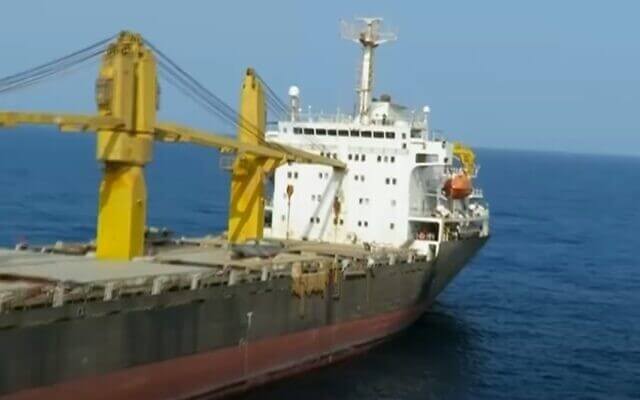Israel has reportedly taken responsibility for a retaliatory attack Tuesday on an Iranian cargo ship, Saviz, in the Red Sea, according to an unnamed United States official who spoke to the New York Times.
This attack in the Red Sea is the latest in a series of maritime exchanges as tensions between Israel and Iran continue to escalate.
“It’s no surprise that the Israel-Iran shadow war has a maritime dimension to it, and the Saviz is likely just the latest vector of that conflict,” said Senior Fellow and Iran scholar at the Foundation for Defense of Democracies (FDD) Behnam Ben Taleblu to The Foreign Desk.
“It’s also no surprise that as Iran looked to use its vessels as floating storage, [to] illicitly sell oil, transfer oil to partners, bust sanctions or bolster its proxies’ warfighting capacities, that they would risk becoming targets,” Taleblu continued.
The attack was reportedly caused by a limpet mine attached to the ship’s hull, a type of mine that typically requires manual placement.
Iran’s Foreign Ministry Spokesman Saeed Khatibzadeh claims the Saviz was “non-military” and was “stationed in the Red Sea region and the Gulf of Aden in order to ensure maritime security along shipping lanes and to counter pirates.”
However, in 2018 the Trump administration announced that it was sanctioning the Saviz in an overhaul of Obama-era policy, citing the fact that the vessel was anchored at a critical choke point where it was suspected of supplying the Iran-backed Houthi rebels in Yemen with military aid, as originally reported by The Washington Free Beacon, using the technical classification of “cargo ship” as a cover for its military purposes.
“Given all the reports and attention the Saviz received from at least 2016 onwards, one wonders how an Iranian vessel that essentially functioned as a floating base and intelligence center enabling the IRGC’s (Islamic Revolutionary Guard Corps) regional strategy was able to idle outside a major conflict zone for so long,” said Taleblu.
The attack took place on the opening day of indirect talks between the U.S. and Iran in Vienna, in which JCPOA signatories and the U.S. will potentially set a path forward to revive the 2015 JCPOA.
There has been no confirmed connection between the events, and “if anything, should the attack be proven to have come from Israel, it would be a continuation of Israel’s ‘war between the wars’ policy and not linked to the success or failure of American diplomatic engagement or JCPOA re-entry,” said Taleblu.
Israel has not publicly announced whether it was responsible for Tuesday’s attack.









